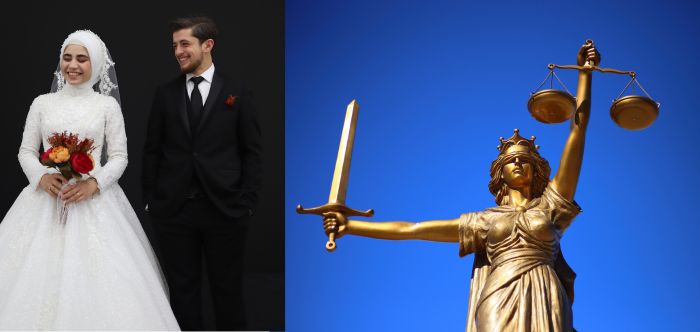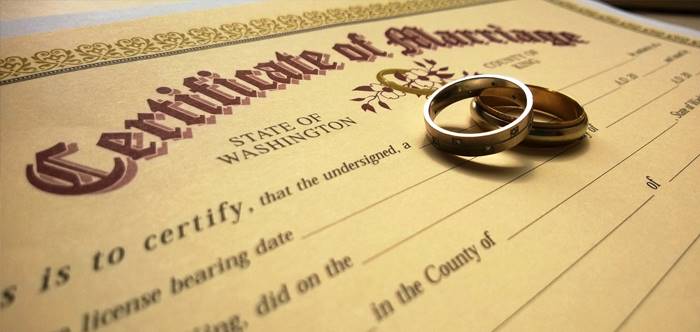Muslim Nikah Ceremony Step by Step Guide In Islam
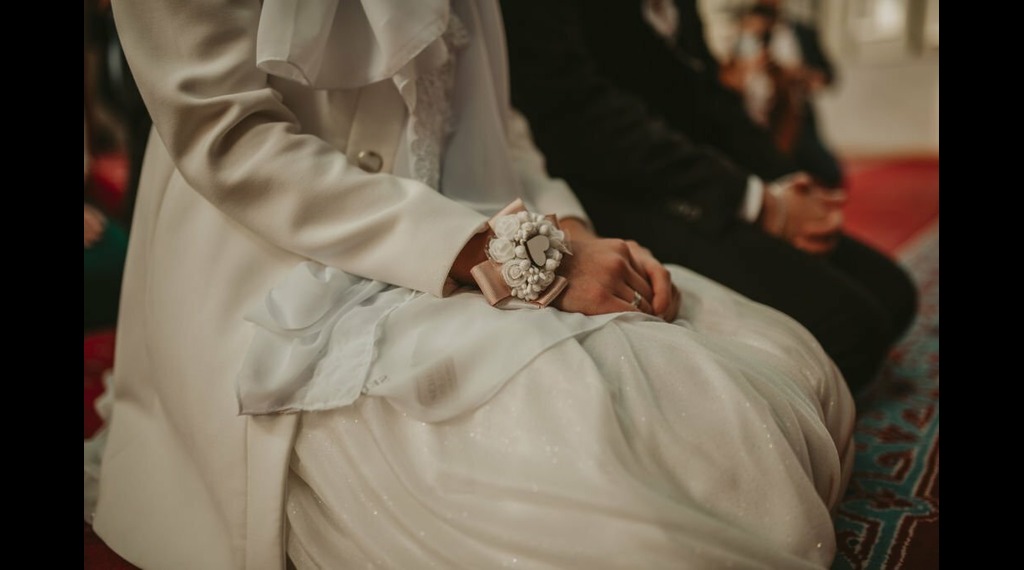
A number of Brothers and Sisters have been inquiring us regarding what they can anticipate from the Nikah ceremony. So this post shows a Nikah ceremony step by step information to all those thinking about getting married and the Nikah requirements in Islam.
What is Nikah?
Wedding (Nikah) is a solemn and sacred social commitment between wedding couple. This commitment is a powerful agreement “Methuen Ghalithun” as expressed in Quran 4:21. The Nikah Nama (wedding contract) in Islam is not a sacrament. It is revocable, ie you can divorce!
How to Do Nikah by Yourself?
Most of the people are asking; How to Do Nikah by Yourself? The answer is very simple, A man the bridegroom doesn’t need to have a Wali at the time of the wedding contract, rather the man is the one who goes into the wedding contract by himself. It is the lady who needs a Wali, since the Prophet Muhammad Peace Be Upon said, based on the hadeeth narrated by ‘Aa’ishah: “Any woman who gets married without a wali, her marriage is invalid, invalid, invalid.” Narrated by Al-Tirmidhi, 1102; classed as hasan by Abu Dawood, 2083; Ibn Majah, 1879.
However, if a man is immature or insecure he is required to have a wali (guardian). If he is of sound mind, however, he doesn’t require a wali. So, basically, both parties mutually acknowledge and enter into this agreement. Please be aware, both groom and bride have the choice to determine different conditions of their preference and make them a part of this contract. If you are searching for how to perform nikah, this mutual agreement and clarity of terms are essential.
There is a strict condition for a Muslim woman. She may only get married to a Muslim man and there is no Nikah if she marries a non-Muslim. If she desires to get married to him, he must convert to Islam freely or else her invalid Nikah is Zina!
Nikah with Non-Muslim
A Muslim man may marry a Christian or Jew faith woman so long as she doesn’t practice Shirk and does not believe in anything that is forbidden in Islam. A Muslim man is Not permitted to get married to a non believing woman who practices any other faith such as Atheist, Hinduism, Sikhism, Buddhism and so on.
A word of advice, make sure you refrain from doing secret Nikah ceremony or without the blessings of the parents or close relatives and guardians.
Fixing the Date of Nikah Ceremony
Firstly, after acknowledging getting married, the couple must consult each other’s families and set a date! Both parties should speak about their needs and anticipations before setting to work, deciding upon a budget, and organizing all that’s needed. Do you need to have the Nikah Ceremony at home or at the masjid? Do you need a separate civil ceremony? Who will you invite? Where will you hold the Walima? All this, and more, needs careful consideration. Keep in mind best wedding is regarded as the one with the minimum expenses. Blow we share the complete chart for the FIQH of Nikah:
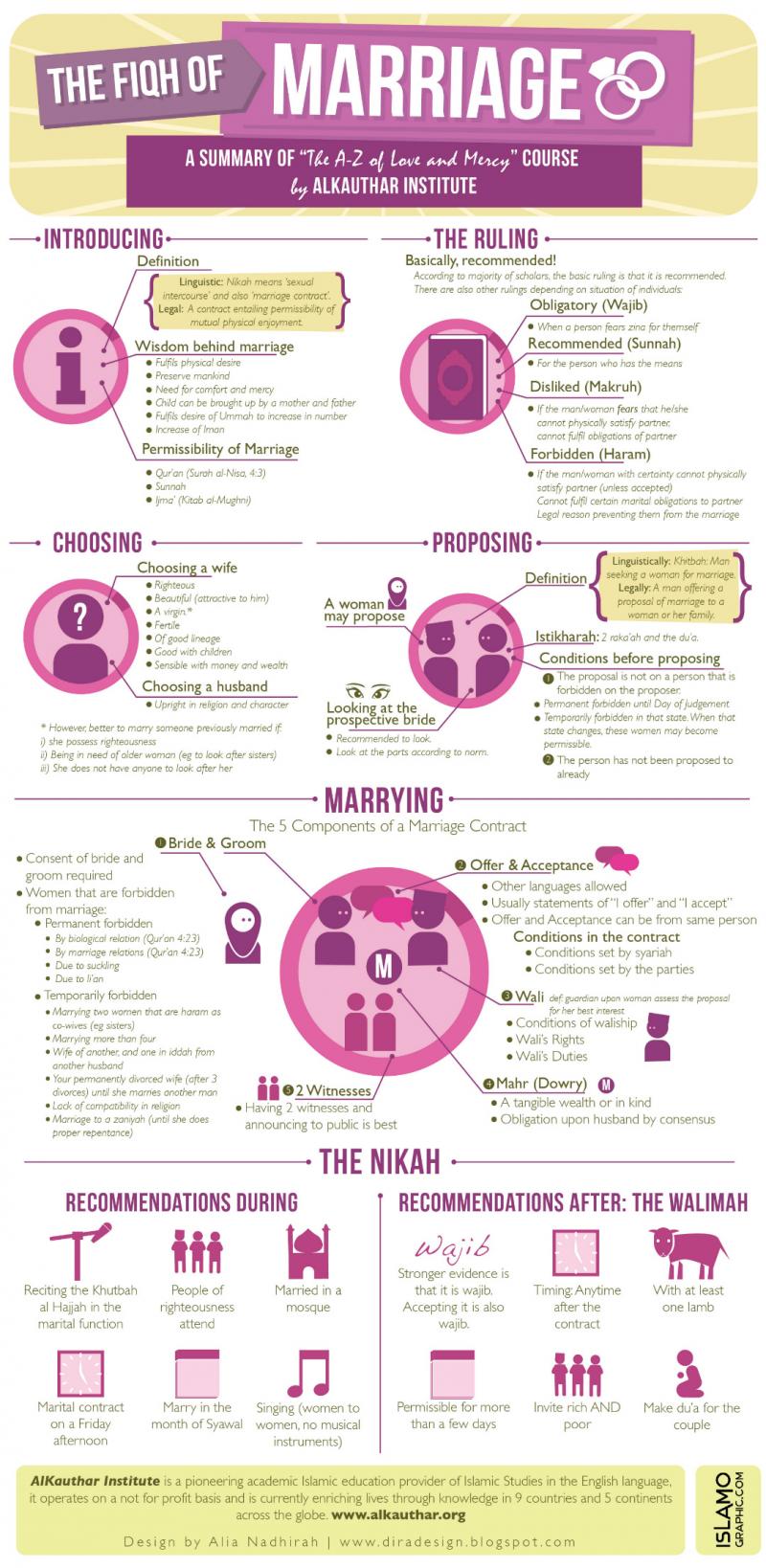
What Is Nikah In Islam
Lets see the fundamentals. The Nikah in Islam is a simple ceremony in which a man and woman declare their oral commitment to each other as husband and wife. It is a “contract” to which both must consent and it is regarded as an act of worship (ibadah).
Islamic Nikah Rules for Muslims:
There is the Al-Ijab wal-Qubul (offer and acceptance) only, where the Wali (woman’s guardian in marriage) offers the bride to the groom, who then accepts.
One matrimonial party expresses ‘ijab” willing consent to enter into marriage and the other party expresses “Qubul” acceptance of the responsibility in the assembly of Nikah ceremony.
Then Wali say: “I give you my daughter/the girl in my guardianship in marriage in accordance to the Islamic Shari’ah in the presence of the witnesses here with the dowry agreed upon. And Allah is our best witness.”
In modern circumstances, couples may seek legal assistance for online Nikah in Pakistan to ensure that all Islamic requirements are fulfilled correctly while maintaining proper documentation.
What does the groom say during Nikah in Arabic
Many people often ask, what does the groom say during nikah in arabic? During the Nikah ceremony, once the offer (ijab) is made, the groom formally responds with acceptance (qabul). This response confirms his agreement to the marriage in the presence of witnesses and according to Islamic law. Those wondering what to say during nikah in arabic should understand that the key element is clearly expressing acceptance of the marriage and the agreed-upon mahr (dowry).
The groom-to-be replies:
Arabic: “قبلت أن أتزوج ابنتك/في رعايتك، وأسميها لنفسي وفق الشريعة الإسلامية، وبحضور الشهود هنا، وبالمهر المتفق عليه، والله خير الشاهدين”.
English Translation: “I accept marrying your daughter/in your care, giving her name to myself in accordance with Islamic Shari’ah, in the presence of the witnesses here, and with the agreed-upon dowry. And Allah is our best witness.”
Thus the Nikah ceremony is complete! Yes, its over in just a few minutes!
Nikah Requirements in Quran
Primary Nikah Requirements in Quran:
- Mutual (consent) agreement (Ijab-O-Qubul) by the bride and the groom.
- Legal guardian Wali ( Muslim ) or his representative, wakeel, ” representing “the bride.
- Two adult and sane Muslim witnesses, (Ash-Shuhud ), 2 males or 1 male and 2 females.
- Mehr (marriage-gift) to be paid by the groom to the bride either immediately (muajjal) or deferred (muakhkhar), or a combination of both.
Secondary Nikah Requirements in Islam:
- Written marriage contract (“Aqd-Nikah”) signed by the bride and the groom and witnessed by the two adult and sane witnesses.
- Qadi (State appointed Muslim judge) or Ma’zoon (a responsible person officiating the marriage ceremony) usually the Imam. (However any trust worthy practicing Muslim can conduct the nikah ceremony, as Islam does not advocate priesthood.)
- Khutba-tun-Nikah (sermon) to solemnise or bless the marriage, this includes making Du’aa
The contract is written and signed by the bride and the groom and their two respective witnesses. This written marriage contract (“Aqd-Nikah) is then announced publicly.
The marriage contract documents are recorded with the Masjid (Mosque) and registered with local Government, thus fulfilling the civil obligations of the marriage. Without this, the marriage would not be recognized under the law of the country you reside and the legal rights of the spouse, such as inheritance, couples and later their children rights would not be valid.
(You will note that it is not essential to have the couple present in the same room during Nikah ceremony, just so long as the Wali and the Witnesses are there and have witnessed everything and the bride has given her consent and permission. She may remain silent…. Meaning it’s a Yes! She accepts.
Announcement of the Nikah Ceremony
Islam encourages its followers to announce a marriage and to celebrate this wonderful relationship between a man and a woman. The Nikah ceremony is also a social activity. The Prophet (PBUH) said: “Declare this marriage, have it in the masjid and beat the drums.”
However, despite being a religious ceremony, the Nikah does not need to take place in a masjid. That is a matter of personal choice. However, you will be required to hold a separate civil ceremony. Sometimes, men and women sit separately at the Nikah ceremony. They may be in a separate room or there may be a partition between them. Again, this is a matter of preference.
Sermon
The marriage sermon (Khutbah-tun-Nikah) is a way of blessing the marriage and begins by praising Allah “There is none worthy of worship except Allah and Muhammad is His servant and messenger”, the Muslim confession of faith, is then declared.
The main body of the sermon comprises three verses from the holy Qur’an and one Hadith:
‘Yaa ayyuha’n-naas uttaqu rabbakum alladhi khalaqakum min nafsin waahidatin wa khalaqa minhaa zawjahaa wa baththa minhumaa rijaalan katheeran wa nisaa’an wa’ttaqu-Llaah alladhi tasaa’aloona bihi wa’l-arhaama inna Allaaha kaana ‘alaykum raqeeban. (Arabic)
(O mankind! Be dutiful to your Lord, Who created you from a single person, and from him He created his wife, and from them both He created many men and women, and fear Allaah through Whom you demand your mutual (rights), and (do not cut the relations of) the wombs (kinship) Surely, Allaah is Ever an All-Watcher over you).’ [al-Nisaa’ 4:1],
‘Yaa ayyuha’lladheena aamanu-ttaqu’Llaaha haqqa tuqaatihi wa laa tamootunna illaa wa antum muslimoon. (Arabic)
(O you who believe! Fear Allaah as He should be feared, and die not except in a state of Islam (as Muslims) with complete submission to Allaah.)’
[Al ‘Imraan 3:102],
‘Yaa ayyahu’lladheena aamanu-ttaqu’Llaaha wa qooloo qawlan sadeedan. (Arabic)
(O you who believe! Keep your duty to Allah and fear Him, and speak (always) the truth).’
Al-Nisaa’i reported that ‘Abd-Allaah ibn Mas’ood (may Allah be pleased with him) said: “The Prophet ? taught us Khutbat al-Haajah: Al-hamdu Lillaahi nasta’eenahu wa nastaghfiruhu, wa na’oodhu billaahi min shuroori anfusinaa wa sayi’aati a’maalinaa. Man yahdih Illaahu falaa mudilla lahu wa man yudlil falaa haadiya lahu. Wa ashhadu an laa ilaaha ill-Allaah wa ashhadu anna Muhammadan ‘abduhu wa rasooluhu
(Praise be to Allah, we seek His help and His forgiveness. We seek refuge with Allah from the evil of our own souls and from our bad deeds. Whomsoever Allah guides will never be led astray, and whomsoever Allah leaves astray, no one can guide. I bear witness that there is no god but Allah, and I bear witness that Muhammad is His slave and Messenger).
(Sunan al-Nisaa’i: Kitaab al-Jumu’ah, Baab kayfiyyah al-khutbah.
The ceremony draws to a close with Du’aa for the bride and groom, their families, the local Muslim community and the Muslim community as a whole (ummah).
Haq Mehr (Dower)
It is written in the Qur’an that Mehr (Dower) must form part of the marriage contract. The groom gives Mehr to his bride as a demonstration of his commitment to her and to providing for her. It can take the form of money, property or possessions. There is no set amount, although moderation is recommended, and the gift is agreed between the bride and the groom.
“And give the women their dowries as a free gift, but if they are pleased to offer you any of it accept it with happiness and with wholesome pleasure.” [Qur’an 4:4]
The groom may pay the Mehr before he marries, at the time of marriage, or at a later date, as agreed with his bride. The mehr can even be postponed indefinitely. However, it will become payable immediately in the case of divorce or death. The amount and method of payment is written into a contract, which is signed by the bride, groom and their witnesses. Following this, the Aqd-Nikah is announced to all who attend the nikah ceremony.
Traditionally, mehr would reflect the social status of the bride’s family. However, these days, the giving of mehr is seen mainly as a symbol. No one wants to begin married life burdened with debt and, equally, Islam does not wish to prevent men from getting married simply because they cannot afford an expensive dowry.
Walima In Islam: The Marriage Banquet
The Wedding Wanquet (Walima) is traditionally held by the groom after the Nikah ceremony has taken place. It may take place immediately following the Nikah, on the following day, the following week or at a future date, but the purpose of the banquet is for family and friends to share in the groom’s happiness on the occasion of his marriage and to give thanks to Allah.
The Prophet Muhammad (PBUH) encouraged Muslims to accept invitations to attend marriage ceremonies and marriage feasts: “…and the person who refuses to accept an invitation to a marriage feast, verily disobeys Allah and His Prophet”. [Ahmad & Abu Dawood]
The Walima should not be wildly expensive. Islam emphasizes moderation and it is sensible to keep this in mind. No one should start their married life with a huge debt, or to burden the families with debt, owing to an extravagant Walima. It is an occasion to celebrate the happiness of the newlyweds and competing with what you may have experienced at a friend or relative’s Walima will most likely lead to escalating costs and distract you from the occasion.
The Prophet (PBUH) said: “The best wedding is that upon which the least trouble and expense is bestowed.” [Mishkat]
The Walima gives family members and friends the opportunity to congratulate the happy couple. The bride is congratulated by the women around her and by her family and friends;
The groom receives the congratulations of men. The newlyweds are also presented with gifts. It is believed that gifts given willingly will strengthen the relationships between people. Therefore, it is important to keep gifts affordable.
The Prophet (PBUH) said: “Exchange gifts, strengthen your love of one another.” [At-Tirmizi]
You may decide to have Nalima after Nikah ceremony on same, it is ok to do so. Maybe to save time, costs and travelling. The husband and wife should spend some time together after Nikah..then do the Walima. They do not need to consummate prior to Walima. This is a wrong concept that some people hold.
Other traditions
Remember these are traditions and a cultural neccessity in certain countries. It is not a requirement in Islam. A mangni (engagement ceremony) may take place once the couple has accepted each other for marriage. It is provides an opportunity for the two families to come together and for the couple to exchange rings, if they so wish. This is not a religious requirement but cultural. Actually in Islam there is no exchange of rings. The outfit of the bride-to-be is traditionally provided by the groom’s family.
It is traditional, but not a religious requirement for the bride to hold a mendhi ceremony, usually at home, shortly before the wedding. The groom’s family provides the henna, which is applied to the bride’s hands and feet. Following the application of mendhi, the bride does not leave the house until the Nikah. Her wedding clothes are also provided by the groom’s family.
Please note again: It is not a religious requirement for the bride and groom to exchange rings in marriage; however it has become tradition and culture dictates it. Gold jewelry is acceptable for women only, although silver rings may be worn by both men or women.
Sunnah Of Wedding Night In Islam
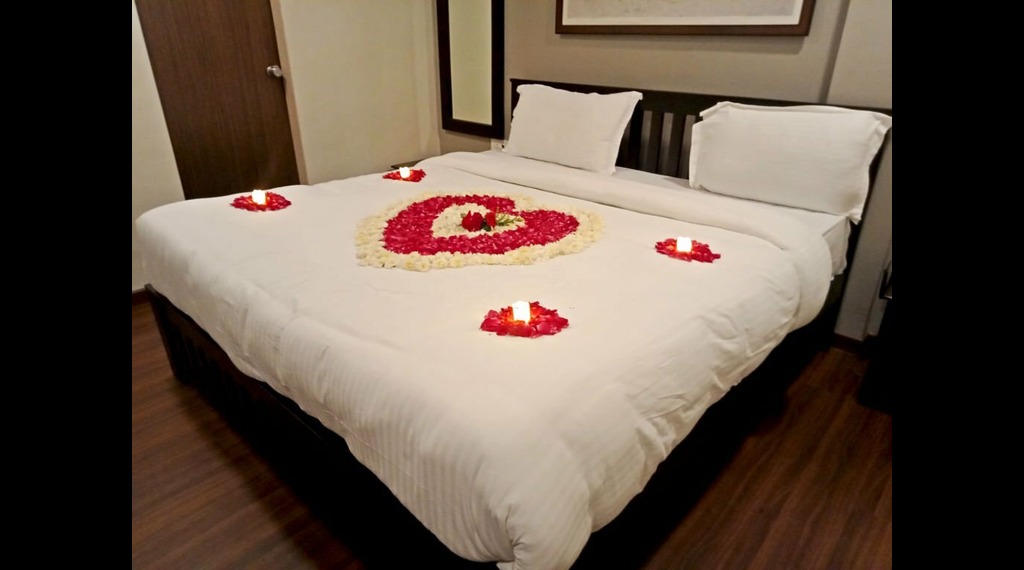
Anticipation of the wedding night can be a cause of wedding day nerves for most Newlyweds, but do try not to let any apprehension spoil your special day. If you know what is expected on this special night, you can reduce the feelings of uncertainty.
The Prophet Muhammad (PBUH) has described for us ways in which the Wedding night can be fulfilling and enjoyable. The Sunnah encourages the groom to place his hands upon his wife’s head and to pray for her.
In the words of the Prophet Muhammad (PBUH): “O Allah, I ask You her goodness, and the goodness of the inborn dispositions which You have given her, and I solicit Your protection from her evil, and the evil of the inborn dispositions which You have given her.” [Abu Dawud and Ibn Majah]
It is preferable that the groom leads his wife in two Raka’at (units of prayer) before asking of Allah what they wish for themselves. The Prophet Muhammad (PBUH) also suggested to say : “O Allah, bless my wife for me, and bless me for her. O Allah, unite between us in good, and if You separate us, separate us in good.” [Abu Shaybah]
The groom should treat his bride with kindness and it is the Sunnah to offer her something to eat or drink. Foreplay is essential: take time to kiss and touch. The Prophet Muhammad (PBUH) said: “One of you should not fall upon his wife like the way an animal does, let there be a messenger between them.” [Daylami]
Nakedness is allowed and they may look at each other at their free will while having intimacy ..ie sex. But there is some hadiths, that I posted recently which some scholars said were weak.. regarding nakedness! They say to preserve modesty, it is preferred if the couple is covered by a sheet, as described by the Prophet Muhammad (PBUH) : “Verily Allah is modest and discreet and He likes modesty and discretion.” [Ahmad, At-Tirmithi and Abu Dawud] (please ref to my post about this)
Take things slowly and gently. Listen to each other and discover what feels good. Like most things in life, sex gets better with practice, so take comfort in the fact that you will soon discover what your partner likes and dislikes. When a woman loses her virginity it may be a bit painful and there may be some blood, but this is not always the case. If you ensure that there has been sufficient foreplay before intercourse, this should make penetration more comfortable. (This is only meant as a guideline to help those who a seeking reliable knowledge.)
It is a Sunnah to pray before intercourse: “In the name of Allah. O Allah, keep Satan away from us, and keep Shaytan away from (the offspring) that which You grant us.” [Bukhari]
You are free to have intercourse in any position you choose (but not allowed by the rear!) and as often as you choose. After sex, couples are advised to bath or shower (ghusl) or, at the very least, wash themselves with wudhu.
The Prophet Muhammad (PBUH) also said: “If one of you had intercourse with his wife and then wants to come to her again, it is better for him to perform wudhu, for it gives him vigor to come again.” [Muslim]
(For information on what is disallowed regarding intercourse, I will leave that for you to find out. However, if anyone wants to know the marital etiquette. Then please go on to my page and you will find a recent post about this)
Conclusion
This article has provided an overview of the most important and fundamental elements of the occasion of the Nikah ceremony (marriage). One important question people often ask is how many gawah required for nikah, as witnesses are an essential part of making the marriage valid in Islam. Lets be clear, many communities have their own traditions and perhaps different ways of doing things, which you will learn of as you go about your planning. Understanding how many gawah required for nikah is part of proper preparation, along with fulfilling all other Islamic conditions. So be flexible to include a few traditions as well as long as they are not extravagant or against the shariah. Do not forget that relatives will prove to be a mind of information and of great help to you at this exciting, yet busy, time so always engage with them over the planning stages.
Hope this makes sense and if I missed anything out then please do let me know. It is probably related to your culture or tradition. Please do share with us all what they were. If you are still wondering How to Do Nikah by Yourself? or looking to understand how to perform nikah, make sure you follow the Islamic requirements properly.
Where distance or legal formalities create difficulty, professional online Nikah services in Pakistan can help facilitate the process in accordance with Islamic and legal standards.
Couples who require proper documentation or legal recognition of their marriage should consult qualified legal professionals to ensure compliance with Islamic principles and local laws.


